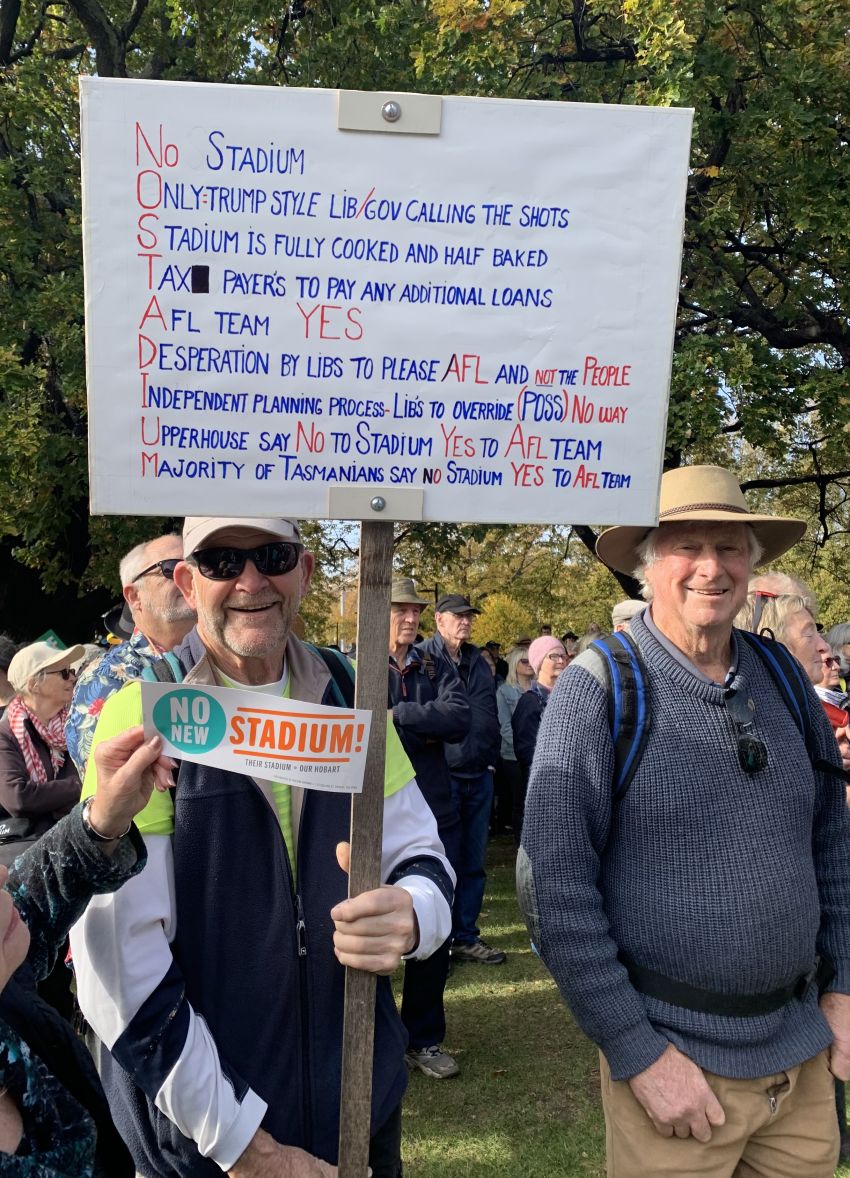
As predicted, the July 19 Tasmanian election returned a hung parliament. As counting continues, so far the Liberals have an overall swing of 3.2%, winning 14 seats, four short of the required majority to form government in their own right.
Labor is sitting on 10 seats (with an overall -3.3% swing), while the Greens (with an overall swing of +0.7%) have won five.
Four independents have been elected, three of whom are progressive. Independents Kristie Johnston and Craig Garland were re-elected and anti-stadium candidate Peter George was elected, as was former Labor leader David O’Byrne.
At the time of writing, the ABC said neither major party will win the 18 seats required to form government. It is also reporting that the Shooters, Fishers and Farmers candidate Carlo Di Falco has a chance of being elected. The Jackie Lambie Network did not contest.
The major parties have been approaching the independents, but not making public their plan to achieve government.
Johnston said she will not enter a formal deal with either major party, but will provide support on merit. O’Byrne, who received a +2.5% swing, said he is happy to talk to either major party.
Garland, Johnston and George issued a joint statement on July 24, saying the suggestion that only one major party has a mandate to form government is “simply incorrect”.
They said “like other crossbench members, we will be speaking to both major parties about confidence and supply”. While informal discussion had begun, they said they would not begin formal discussions until the result is confirmed — likely next week. They said they are “not in a formal or informal alliance”.
The overall results can be interpreted as voters being uninspired by the major parties.
George told Green Left: “Tasmanians have witnessed wasted years with the failure of either of the two old parties to focus on the issues you correctly identify — housing, health, education — and squandered opportunities to rebuild Tasmania’s economic base.
“Much of this is the result of the corporatisation of both old parties, captured by multinationals and lobbyists who run the state through parties with policies so similar they might as well be in coalition.” George said he contested the election, at the age of 74, out of “despair”, which he suspects many share, because housing, education and health are “all in crisis”.
Independents running against the wasteful stadium plan and support for industrial salmon farming received solid support, with Garland receiving a +5.1% swing in Braddon, ahead of the Greens, and Johnston receiving a +7.4 swing in Clarke. Cecily Rosol, the Greens candidate in Bass, received a swing of +4.8%. Greens party leader Rosalie Woodruff, standing against George, was re-elected, but with a -6.1% swing.
Tasmania has some major social problems for which neither major party has solutions. As of March, there were 5056 applicants on the social housing waitlist, 3098 of which were classified as highest priority. The average wait time to receive social housing is 82 weeks.
The problem is compounded by a shortfall in housing construction. In the most recent quarter, just 706 homes were built, falling far short of the 1306 target.
Meanwhile, Tasmania faces an unmet housing need of about 8100 dwellings, underscoring long-term neglect of public infrastructure. These issues have led to a worsening crisis of affordability and access.
More than one-third of all renters are in housing stress, with severe, or even extreme, levels for pensioners or JobSeeker recipients. Anglicare Tasmania reported on June 26 that rents have surged by about 43% since 2020. TasCOSS estimates that about 120,000 Tasmanians live in poverty.
Despite 75.1% of residents telling the Salvation Army that housing affordability and homelessness are major concerns, and 36.6% saying it was an issue for themselves, the major parties had little to say during the campaign. The Liberals promoted its “build-to-rent” policy and incentives for developers and Labor offered token first-home‑buyer relief.
Recurring budget deficits and promises to spend $785 million on a new stadium at Macquarie Point have made people angry.
Despite 69% of Tasmanians opposing the new stadium, the major parties support it. Labor’s decision to change its position and support the stadium would not have helped its election prospects.
George said the task is "daunting”, adding, “If there is to be hope, the two old parties need to recognise the benefits of minority government and take advantage of it. We need to be governed by the best not by the worst.”